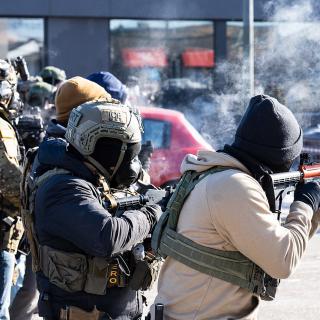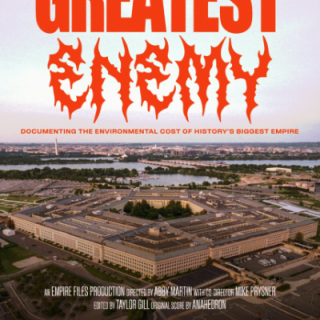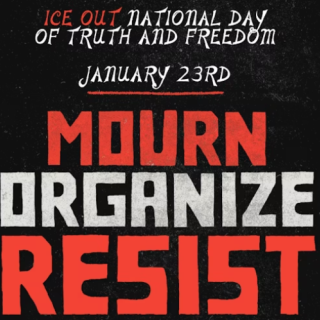Advertisement
On January 22, 2021 the world will declare nuclear weapons to be illegal under international law.
That is the date when the United Nations Treaty on the Prohibition of Nuclear Weapons comes into force. This amazing feat is the culmination of years of work by antiwar and human rights activists worldwide.
History of the Treaty: The U.N. General Assembly convened a Conference to Negotiate a Legally Binding Instrument to Prohibit Nuclear Weapons, Leading Towards their Total Elimination which met over a 5-month period in 2017. Discourse was centered around the humanitarian consequences of the use of nuclear weapons, international humanitarian law, and the recommendations of three U.N. international conferences on the humanitarian impact of nuclear weapons held in 2013 and 2014. On July 7, 2017, the Treaty was adopted by a 122-1 vote of participating nations. The Treaty was designated to come into force 90 days after it had been ratified by 50 nations. The 50th nation, Honduras, ratified the Treaty on Oct. 24, 2020.
What the Treaty officially does: Nations that are party to the Treaty are prohibited from “developing, testing, producing, manufacturing, transferring, possessing, stockpiling, using or threatening to use nuclear weapons, or allowing nuclear weapons to be stationed on their territory.” They are also obliged to provide assistance to people affected by the use or testing of nuclear weapons and provide environmental remediation where needed. Nations who possess nuclear weapons and join the Treaty must make a timed plan for divesting of all nuclear weapons involvement.
The social ramifications of the Treaty: The effects of the Treaty will go far beyond the official requirements. The International Campaign for the Abolition of Nuclear Weapons (ICAN) was a major force behind the Treaty. ICAN won the Nobel Peace Prize in 2017 for their work on this issue. ICAN has nearly 600 partner organizations, including the Sierra Club, in over 100 countries committed to advancing the Treaty. ICAN points out that financial institutions will stop investing in nuclear-weapons-producing companies. Companies can be expected to stop producing nuclear weapons and their components. People, companies, universities and governments will know that nuclear weapons have been prohibited and stigmatized, and that this is the time for them to stand on the right side of history.
This is a critical time, when Donald Trump has pulled the U.S. out of the Iran Nuclear Deal, the International Nuclear Forces (INF) Treaty and the Open Skies Treaty. The Trump administration has (unsuccessfully) pressured nations that have ratified the Treaty to withdraw from it and abstain from encouraging others to join it. Barack Obama initiated, and the Trump Administration continues, the spending of $1.2 trillion to “upgrade” US nuclear weapons over the next 30 years.
What we can do now:
· Now is the most critical time to push the Biden Administration to reverse these deadly setbacks and to cut the nuclear weapons budget.
· Individuals can join the Back from the Brink Campaign, which advocates 5 steps to reduce the chances of nuclear war: 1) renouncing the option of using nuclear weapons first; 2) ending the sole, unchecked authority of a U.S. president to launch a nuclear attack; 3) taking U.S. nuclear weapons off hair-trigger alert; 4) cancelling the plan to replace the entire U.S. nuclear arsenal with enhanced weapons; and 5) actively pursuing a verifiable agreement among nuclear armed states to eliminate their nuclear arsenals.
· Don’t Bank on the Bomb, a project of ICAN, puts pressure on institutions to stop lending to companies that are in the nuclear weapons business.
· Join and support Abolition 2000, a Global Network to Eliminate Nuclear Weapons.
Join Activists on January 22
Tell Battelle, Nuclear Weapons are Illegal!
· On January 22 at 1 pm, Columbus activists will hold a rally at Battelle Memorial Institute headquarters at 505 King Avenue, at the corner of Old Cannon Road. The rally will focus on the importance of Battelle divesting from now-illegal nuclear weapons work and converting their efforts to life-affirming work that promotes health and equity, such as addressing present and future global pandemic threats.
· Battelle is a private, nonprofit (tax deductible) charitable trust, organized for charitable, scientific and education purposes. Gordon Battelle left his fortune “to benefit mankind through science.” The institute opened their King Ave. site in Columbus in 1929.
· Battelle manages 6 nuclear weapons laboratories and has received billions for nuclear research and development.



